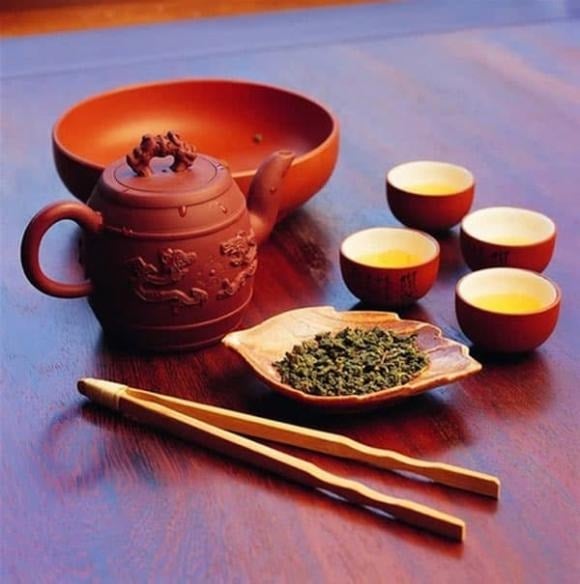Leaving food overnight is a common practice for many people as it is convenient and prevents waste. However, not all foods are safe to consume after being left out. Here are some important considerations regarding food storage and consumption after being left out overnight.
Are eggs safe to eat after being left out overnight?
Whether eggs can be eaten after being left out overnight depends on their preparation and storage:
If the eggs are not fully cooked, especially with runny yolks, leaving them out overnight without proper storage can create an environment for bacterial growth, potentially causing digestive issues such as stomach aches, bloating, and discomfort.
Fully cooked eggs that are properly covered and stored in a refrigerator at low temperatures can be safely kept for up to 48 hours without any issues.
According to experts, to ensure food safety, eggs should be thoroughly cooked initially and properly stored if intended for later consumption.
Don’t drink overnight tea
Tea left overnight not only loses its important nutrients but also can become a favorable environment for bacterial growth:
The vitamins in tea break down over time, reducing its nutritional value.
Proteins and sugars in tea can serve as a food source for bacteria and mold to thrive.
Therefore, tea left overnight, especially without proper storage conditions, should not be consumed to avoid potential health risks.

Don’t drink boiled water left overnight
Many people have the habit of boiling water, letting it cool, and then consuming it over several days. However, water left overnight may undergo changes that are not beneficial to our health:
Formation of Nitrites: During prolonged storage, especially beyond 24 hours, the nitrite levels in water can increase. Nitrites, when ingested, have the potential to transform into nitrosamines, which are compounds associated with an increased risk of cancer.
Research indicates that water that has been boiled multiple times or left for extended periods exhibits higher nitrite levels compared to freshly boiled water. After 24 hours, the nitrite levels in water can be 1.3 times higher than in freshly boiled water.
To safeguard your health, it is advisable to consume water immediately after boiling or within the same day, avoiding prolonged storage.

Can Snow Fungus Soup Be Eaten Overnight?
Snow fungus soup is a nutritious dish, but if left overnight, it not only loses its nutritional value but may also produce harmful substances:
High Nitrate Content: Both cultivated and wild snow fungus contain high levels of nitrates. When left for an extended period after cooking, bacteria can break down nitrates into nitrites, which can be detrimental to the body.
Negative Impact on Blood: Consuming foods with high nitrite levels can lead to the oxidation of hemoglobin to methemoglobin, reducing the blood’s ability to carry oxygen. This can result in oxygen deficiency and impact the body’s blood-forming functions.
For these reasons, it is best not to consume snow fungus soup that has been left overnight.
Don’t eat leftover green leafy vegetables
Green leafy vegetables are rich in vitamins and minerals, but if left overnight, they can become a source of compounds that are not beneficial to our health:
Certain green leafy vegetables have high nitrate levels. When left for extended periods after cooking, bacteria can convert these nitrates into nitrites, potentially increasing the risk of cancer.
Reheating the vegetables does not eliminate the presence of nitrites. Therefore, it is advisable to consume green leafy vegetables immediately after cooking and avoid storing them overnight.
Soft-stemmed and green leafy vegetables have the highest nitrate levels, followed by cucumbers. In contrast, root vegetables and broccoli exhibit moderate nitrate levels. Thus, when storing vegetables, prioritize root vegetables over green leafy ones.
Seafood should not be left overnight
Seafood, such as fish, shrimp, crab, and squid, is rich in protein, but if left overnight, it can have adverse effects on the body:
After being left for an extended period, the proteins in seafood can break down and form compounds that are not beneficial, impacting the function of the liver and kidneys.
Additionally, bacteria in seafood can proliferate when stored improperly, increasing the risk of food poisoning.
If you need to store cooked seafood, cover it tightly and keep it in the refrigerator at low temperatures. However, for optimal food safety, it is best to consume seafood on the same day it is prepared.
Don’t eat marinated food left overnight
Some dishes, such as pickled, stewed, or marinated foods, are often stored overnight, but this practice can compromise food safety:
Pickled or stewed foods contain salt and spices, but they cannot completely prevent bacterial growth over time.
Especially during spring and summer, higher temperatures accelerate bacterial growth, increasing the risk of food poisoning.
Even when stored in a refrigerator, food can become contaminated by the growth of psychotropic bacteria and cross-contamination from other foods. Therefore, it is advisable to consume pickled or stewed dishes on the same day they are prepared, rather than storing them overnight.






































